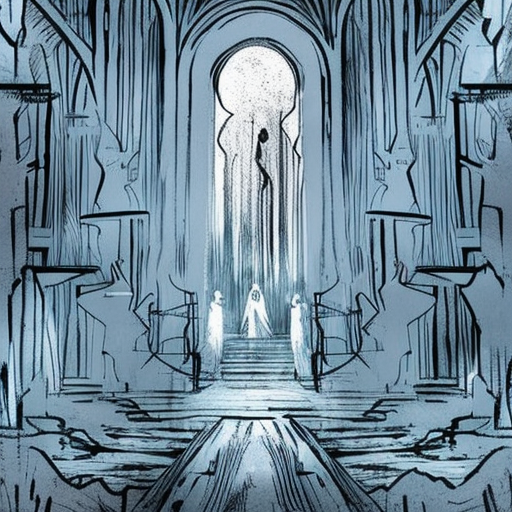One-line Summary:
“The Children Act” is a thought-provoking novel that explores the complex ethical and moral dilemmas faced by a High Court judge as she presides over a case involving a teenage boy’s refusal of a life-saving blood transfusion due to his religious beliefs.
A Glimpse into Fiona Maye’s Life
In “The Children Act,” author Ian McEwan introduces readers to Fiona Maye, a highly respected and dedicated High Court judge in London. Fiona’s life revolves around her work, often leaving little room for personal relationships. Her marriage to Jack, a professor, is on the brink of collapse, as both struggle with their own ambitions and desires. Fiona’s commitment to her job is unwavering, and she is known for her meticulousness and fair judgments.
The Adam Henry Case
The central conflict of the novel arises when Fiona is assigned a case involving Adam Henry, a seventeen-year-old boy suffering from leukemia. Adam’s parents, devout Jehovah’s Witnesses, refuse to consent to a blood transfusion that could potentially save his life. Fiona is tasked with making a life-or-death decision on behalf of Adam, as his refusal of treatment is based on his religious beliefs.
As Fiona delves into the details of the case, she visits Adam in the hospital to gain a better understanding of his perspective. She is struck by his intelligence and maturity, which further complicates her decision. Fiona’s personal and professional lives intertwine as she grapples with the weight of her responsibility and the consequences her ruling may have on Adam’s life.
Ethical Dilemmas and Personal Reflections
Throughout “The Children Act,” McEwan explores the ethical and moral dilemmas faced by Fiona. As a judge, she must balance the principles of the law with her own personal beliefs and the impact her decisions have on the lives of others. Fiona’s commitment to justice is tested as she navigates the complexities of the legal system and the emotional toll it takes on her.
As the case unfolds, Fiona’s personal life unravels further. Her marriage reaches a breaking point, and she finds solace in a brief affair with a younger man. These personal struggles mirror the challenges she faces in the courtroom, highlighting the interconnectedness of her professional and personal identities.
Key Takeaways:
- Fiona Maye, a High Court judge, is faced with a difficult case involving a teenage boy’s refusal of a life-saving blood transfusion due to religious beliefs.
- The novel explores the ethical and moral dilemmas faced by Fiona as she balances the principles of the law with her personal beliefs.
- Fiona’s personal and professional lives intertwine, leading to personal reflection and difficult decisions.
“What had she learned? That there was no straight path in law or in life, that the most obvious solutions were often the most problematic, that she must be prepared to live with the consequences of her actions, and that she must always strive to do what is right.”
In “The Children Act,” Ian McEwan skillfully delves into the complexities of morality, religion, and the legal system. Through Fiona Maye’s journey, readers are confronted with thought-provoking questions about the limits of personal freedom, the role of the law in protecting individuals, and the weight of responsibility placed on those in positions of power. The novel serves as a reminder that life is rarely black and white, and the decisions we make can have far-reaching consequences.
Key themes in “The Children Act” include the following:
– The intersection of personal beliefs and professional responsibilities
– The complexities of the legal system and the impact of judicial decisions
– The fragility of relationships and the consequences of neglecting personal connections
Ultimately, “The Children Act” challenges readers to reflect on their own moral compasses and the difficult choices we all face in life.












